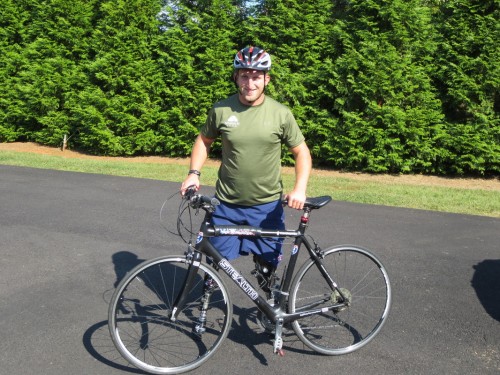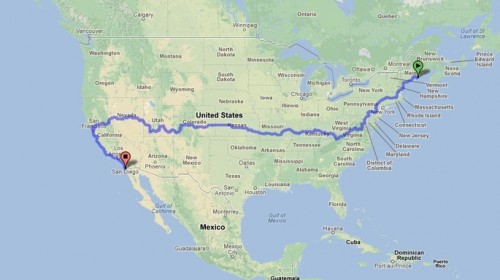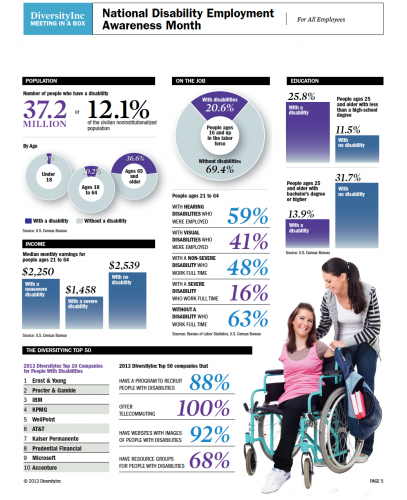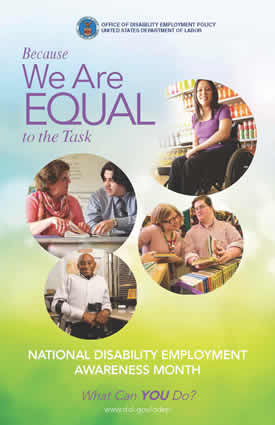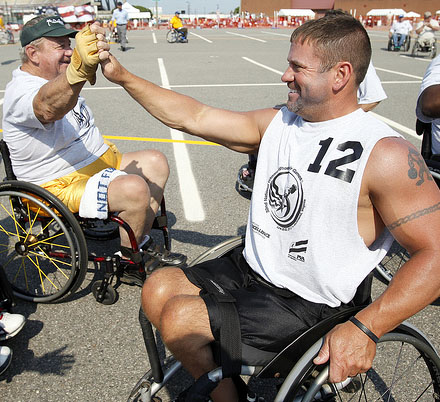Experienced users of adaptive driving aids, as well as those who have just been introduced to them, will appreciate the depth of experience and the number of options available to them here at VMi New England Mobility Center and Automotive Innovations, Inc.
Adaptive driving aids are as diverse as the people who use them, but they do fall into several distinct categories; basic driving aids, reduced effort modifications and advanced driving controls.
Basic Driving Aids
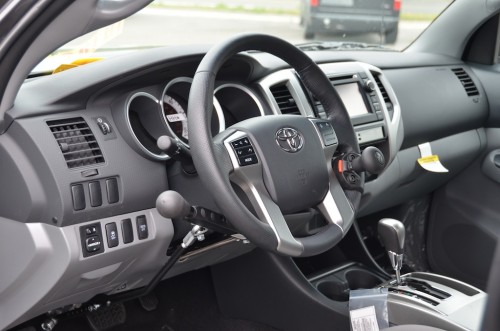
Basic driving aids are adaptations which are engineered to allow you to utilize the more “able” aspects of your body in order to operate your vehicle. Hand controls, left foot gas pedals and pedal extensions are among the many options that fall into this category.
Hand Controls
Hand Controls allow you to use the upper part of your body to do what might be difficult for the lower parts – such as braking and accelerating. A variety of hand control options are available to fit your needs and preferences.
- A Push/Pull is the basic of hand controls allowing you to push forward to brake and pull back to accelerate.
- A Push Right Angle is a hand control where you push forward to brake and pull down towards your lap to accelerate.
- A Push/Twist is a hand control where you push forward to brake and twist similar to a motorcycle grip to accelerate.
Steering Controls
Steering Controls are adaptations added to the steering wheel of a vehicle. Steering controls make steering for those with limited grip or strength an easier task.
- A Spinner Knob is a small knob that presses firmly in the palm of your hand. A spinner knob gives the operator a steady grip and the ability to steer with one hand.
- A Palm Grip is made only by MPD and allows your hand to comfortably sit in a lightweight aluminum wrap with sheepskin liner. The Palm Grip allows firm steering control for those who have little or no gripping ability. The Palm Grip is ideal for those with arthritis.
- A Tri-Pin is a steering grip that comfortably rests your hand in-between three pins. The pins are adjustable and can be used to accelerate, brake or be used on the steering wheel instead of a spinner knob. If need be, they can also be custom fitted to operate the turn signal, horn and dimmer.
Extension Controls
Extension Controls are driving aids that give users the extra inch they need to be comfortable in their accessible vehicle. Whether they are shorter than average or have limited strength in their arms these adaptations can make all the difference in driving.
- Pedal Extensions are for vehicle operators who can not reach the gas or brake pedal. Pedal extensions give the driver the inches they need to sit and drive comfortably at a safe distance from the airbags.
- Turn Signal Extensions consist of a simple rod to the right side of the steering wheel that can be adjusted appropriately to meet the needs of the driver.
- Key Extensions are available for those who have trouble with the turning motion of starting their vehicle. The additional leverage is adjustable to fit the needs of the operator.
- Steering Column Extensions allow up to six inches between the operator and the steering column.
Foot Controls
Foot Controls are for individuals who have zero to limited feeling in their feet. Foot controls are also valuable to those who may have a prosthetic limb and need to use their left foot to drive.
- Left Foot Gas Pedals allow drivers to accelerate using their left foot. A pedal is attached to the accelerator that is located on the left side of the brake. A guard is then placed over the original accelerator so that the right foot does not inadvertently rest on the factory installed pedal.
- An Accelerator & Brake Guard is a shield that goes over the accelerator, brake or both when the operator is using hand controls to operate the vehicle. An accelerator and brake guard is a safety feature that prevents operators from accidentally resting their foot on the brake or accelerator.

